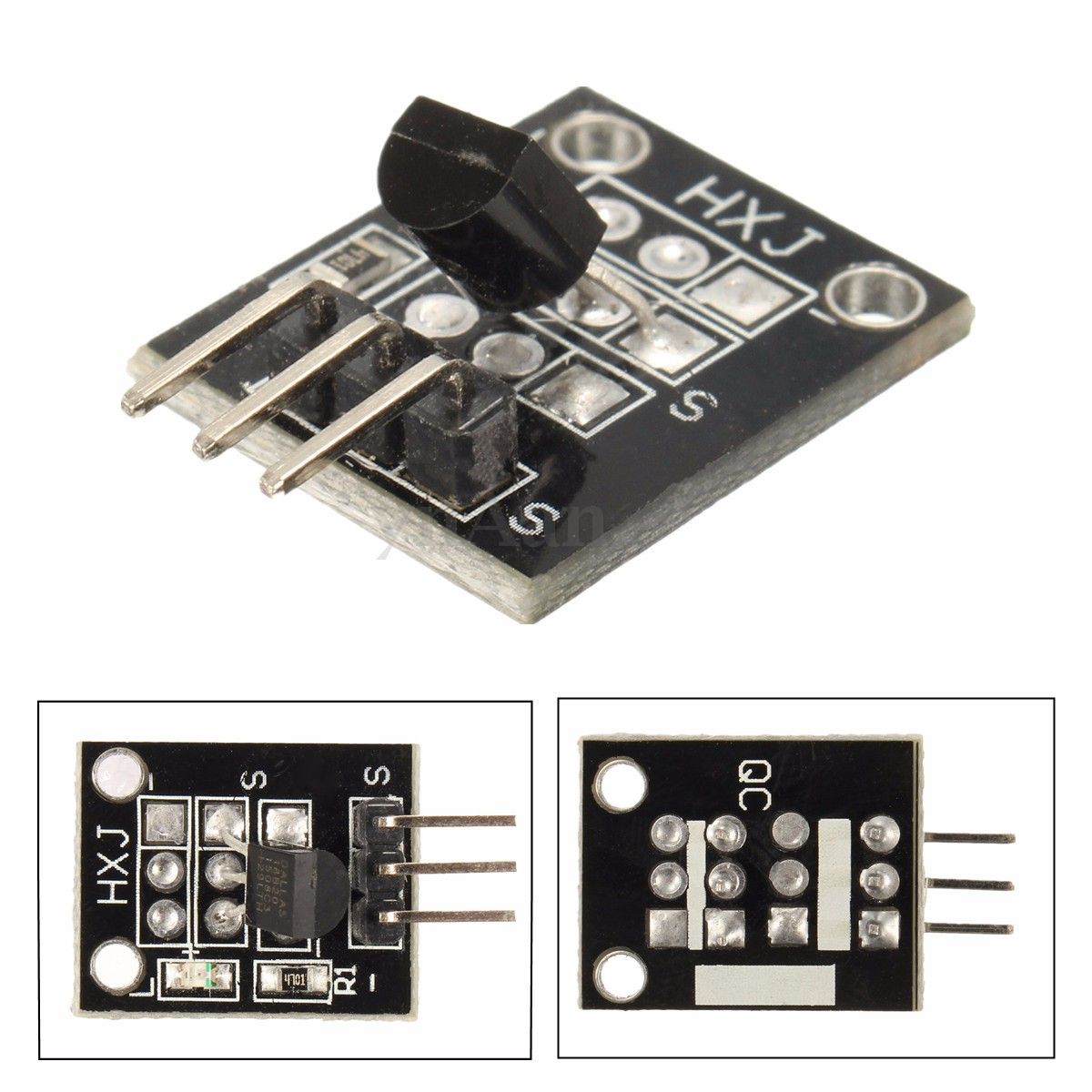KY-001
Temperature sensor module
ultimo aggiornamento 29 gennaio 2017

|
KY-001 ultimo aggiornamento 29 gennaio 2017 |
 |
Il modulo KY-001 Temperature sensor module, fa parte della serie "37 In 1 Sensor Module Board Set Kit For Arduino" e consente di misurare la temperatura ambiente utilizzando il bus seriale digitale.

Specifiche tecniche:
Il sensore di temperatura è costituito da un sensore digitale
prodotto dalla
Dallas
Semiconductors- Maxim con il nome
DS18B20 (per altre informazioni vedere
questa pagina), un LED ed un resistore.
Il sensore è compatibile con le piattaforme di elettronica popolari come
Arduino e
Raspberry Pi.
Caratteristiche del modulo:
Tensione di funzionamento: 3.0V a 5.5V
Gamma di misurazione della temperatura -55 ° C a 125 °C]
Precisione di misura ± 0,5 ° C
Dimensioni 18,5 x 15mm
| DS18B20 Termometro digitale 1-Wire a risoluzione programmabile | ||
 |
|
 |
| Piedinatura | Datasheet | Foto dell'integrato |

Per altre informazioni e un'altro esempio di utilizzo del sensore DS18B20 , vedere questa sezione
 |
 |
 |
 |
 |
Schema di collegamento del modulo con Arduino

|
Il seguente sketch di Arduino utilizza due librerie, la libreria OneWire per la comunicazione seriale con il modulo KY-001, e la libreria DallasTemperature. In uscita si potrà leggere la temperatura letta dal dispositivo.
|
|
| Elenco revisioni: | |
|
24/08/2016 | Aggiornato pagina |
|
03/05/2015 | Emissione preliminare |